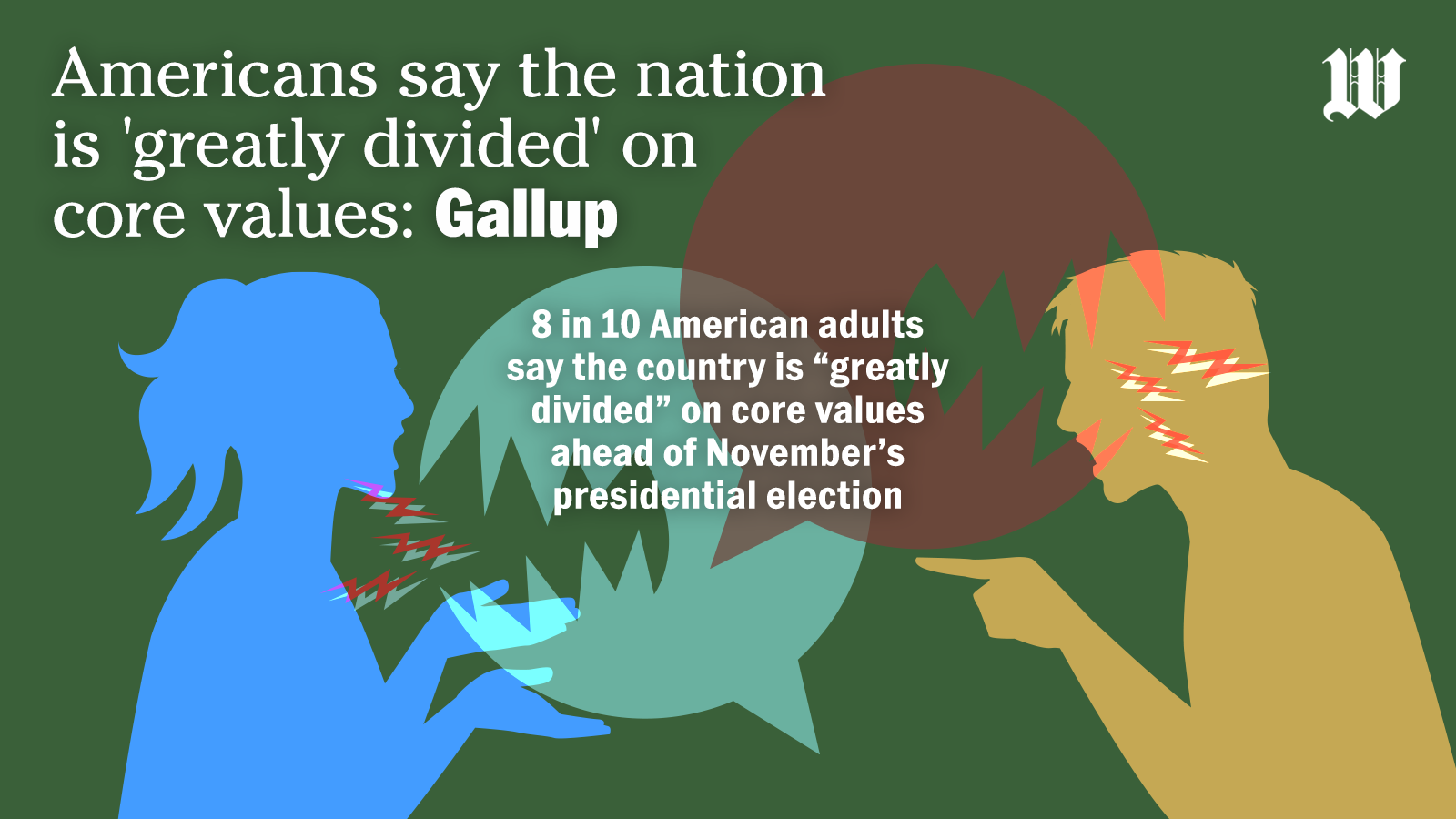A record high 8 in 10 American adults say the country is “greatly divided” on core values ahead of November’s presidential election, a Gallup poll reported Monday.
The polling company said the tally is up from a previous high of 77% the last time it surveyed the issue in 2016. It also shot up more than 10 percentage points from similar surveys in 2004 and 2012.
Just 18% of those responding to this year’s survey perceived the nation as “united or in agreement about the most important values,” according to Gallup, which first asked the question in 1993.
Results were similar across all races, political identities, ages and other demographic groups.
“Today’s doubts about national unity are likely informed by the closely contested presidential elections in recent years, as well as alternating partisan control of Congress that currently has a narrow Republican majority in the House of Representatives and a razor-thin Democratic majority in the Senate,” said Jeffrey M. Jones, a Gallup senior editor.
Mr. Jones pointed to a 2023 survey that found “significant party gaps” between Republicans and Democrats on key policy positions.
He noted that values surrounding the issues of federal government power, the environment, education, abortion, foreign trade, immigration, gun control, health care and taxes saw “the biggest increases in partisan differences” over the past two decades.
In three decades of Gallup surveys, the only time that most adults said the nation was greatly united came after the Sept. 11, 2001, terrorist attacks.

The company noted that a record-high 74% of adults responding to a November 2001 survey said the country was “united and in agreement” about essential values. In a September 2002 survey, 69% of adults said the same.
“The terrorist attacks led to a surge in patriotism and Americans rallying around their political leaders and institutions,” Mr. Jones wrote in a summary of findings.
Historically, adults responding to Gallup’s occasional surveys have been much more likely to perceive unity in the nation when their political party controls the White House.
That gap narrowed to a statistical tie in the latest survey, with just 19% of self-identified Democrats saying the nation was united. Democrats were 4 percentage points more likely to make this claim than Republicans and 1 percentage point more likely than independents, both within the poll’s margin of error.
Gallup conducted a randomized national telephone survey of 1,015 adults on Aug. 1-20. The margin of error was plus or minus 4 percentage points at the 95% confidence level.
• Sean Salai can be reached at ssalai@washingtontimes.com.




Please read our comment policy before commenting.